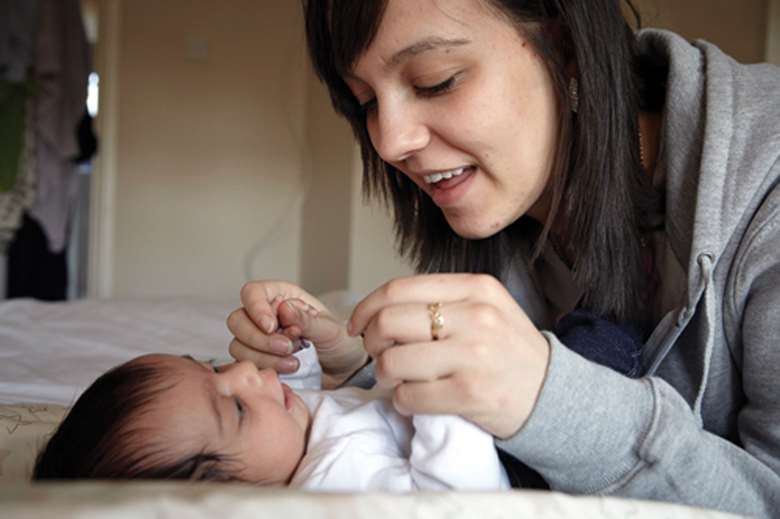Health commissioners urged to tackle perinatal mental illnesses
Gabriella Jozwiak
Monday, September 2, 2013
Several new projects have been launched to improve perinatal mental health support.

Perinatal mental illnesses affect at least one in 10 mothers and, if untreated, can have a direct impact on their children.
Awareness of these issues, which range from mild anxiety to severe psychosis, has traditionally been low. But this year has seen the launch of several projects to improve the support available.
In October, a Comic Relief-funded campaign to raise awareness of perinatal mental health will begin putting pressure on health commissioners to address the problem. The "Maternal mental health - everyone's business" initiative will champion the cause for three years. It is run by the Maternal Mental Health Alliance, a coalition of more than 40 UK organisations.
Sally Hogg, the NSPCC's development manager for children under one, says the campaign will be two-pronged. It will provide local health commissioners with evidence of what support should be available, and will highlight the geographical areas where help is lacking. "Services are incredibly patchy," says Hogg. "In some places in the UK, the services are world leaders in what they do. In other places there's nothing."
Hogg authored a study on perinatal mental health for the NSPCC that was published in March. It found that only 27 per cent of maternity services have a specialist mental health midwife.
The study estimated that 40 per cent of women see a different midwife at every appointment, while 41 per cent said a health visitor or midwife never spoke to them about depression. "This situation means we're losing the chance to nip in the bud issues that can create risk to the mum and the baby," she says.
Areas without specialised mother and baby units can increase the distress suffered by mothers. Hogg says GPs may incorrectly prescribe drugs or be unaware of which drugs can be administered to breastfeeding women. In acute cases, mothers can be sent to general psychiatric units where they are separated from their babies.
Strategic approach
Hogg says the formation of NHS England could help solve inconsistencies in services because it will take a more strategic approach to commissioning. Data collection is also set to improve, as the Department of Health has funded the National Perinatal Epidemiology Unit to assess levels of perinatal mental illness cases. "Once we can show a local commissioner the number of women who need support, that strengthens the case," says Hogg.
Health visitors across England are also about to receive training from 300 perinatal mental health champions. The Institute for Health Visiting (IHV) has finished training champions who will deliver the learning to staff.
IHV director Cheryl Adams says the champions will become a local resource and train other people working with mothers, such as children's centre workers.
She says the approach will drive quality and consistence of care, which will help prevent a postcode lottery in provision. "What's unique about the work is that the health visitors will continue to be linked to us," she says. "We will provide them with a quarterly newsletter to keep them current on research developments, which they can link up with their practice."
IHV is trying to improve understanding of the issue among other health service providers. It is asking GPs, children's centres and other services to improve their awareness of what support is available, and refer women on if they cannot help them themselves.
IHV is also developing e-learning provision for health visitors about perinatal mental health, and a wellbeing plan for mothers to be released by the end of the year. "It will be like a birth plan, but encourage mothers to think through who they could turn to for support before it happens," says Adams.




